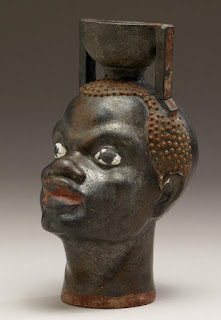Romans,Romaioi,Rumlar oder ganz einfach "Romäer"
Romans—Romaioi or Rumlar—suddenly became "Hellenes"
“...The Lausanne treaty has been written as if distinguishing between "Greeks" (the term for Orthodox Christians) and Muslims was an easy thing—as if both communities should have felt some affinity for Greece and the new Turkish Republic as their natural homelands. But in a many communities, the lines were indistinct. A person of Orthodox religious affiliation—the only criterion, according to the treaty, for being "Greek" —might speak only Turkish or a variety of Greek unintelligible to a Greek-speaker from the Aegean. A Muslim from Greece likewise might be most comfortable in Greek or a Balkan Slavic language, not Turkish.
Nevertheless, communities were marked for wholesale removal based on their presumed ethnic traits. Disputes over whether a person or a family was, in fact, "exchangeable"—subject to a compulsory deportation—were adjudicated by a special intergovernmental committee established under Lausanne.
By the middle of the 1920s, Trabzon, Samsun and Sinop had been virtually emptied of Christians. Even the Greek-speaking communities of the Pontic uplands, the Matzouka region where the last remnants of Byzantium had lingered on in monasteries and villages for centuries, came to an end.
People who still called themselves Romans—Romaioi or Rumlar—suddenly became "Hellenes", just as people who had once been simply Muslim now became "Turks".
And both found themselves in new, national homelands to which they had never owed allegiance.
It was "a thoroughly bad and vicious solution," declared Lord Curzon, one of the framers of the Lausanne treaty, "for which the world would pay a heavy penalty a hundred years to come." …’’
Charles King, The Black Sea, A History, Oxford University Press Inc., New York, 2994, pg. 214
the Hellenic nations is not a nation already in existence
14. Romans, Hellenes and the constitutions
According to the early constitutions of 1822-1832 the Hellenic nations is not a nation already in existence with a part of it in revolt and a part not in revolt.
Hellenes are the native born provincials of the old Roman province of Hellas.
In other words the provincial name became the national name.
The right to become Hellene was given to the Romans in revolt in other places, but only on condition that they come and settle permanently in Hellas, Therefore, the Romans outside of Hellas are not considered constitutionally Hellenes because they fought, but only if and when they come and settle in Hellas[33].
It must be appropriately noted that the other Romans were not much disturbed at the fact that the Hellenes of Hellas constitutionally named only themselves Hellenes, since this was a provincial and. They were rather scandalized by the fact that followers of Koraes worked fanatically to pull the nails out of and dissolve Romanism and to separate the self-created new Church of Hellas from the Ecumenical Patriarchate, as though it were not right for Hellenes to belong to a Roman Patriarch.
19. Romanism bilingual till today
The Franks, as well as Europeans and Russians who followed were not able to understand how it was possible for Romans to become Hellenes and for Hellenes to become Romans with both being fused into one nation with Hellenic Civilization and with two language instead of one, as approximated in the case of Switzerland today.
It is known that Romanism had two official languages, Latin and Greek. Latin is called Romaika and Greek came to be known as Romaika[43]. The same with one iota means Latin and with two iota means Hellenic; thus the same name signifies the two languages of Romanism.
But Romanism is still bilingual today. This is so because the Vlachic language spoken in Greece is Neo-Latin or Neo Romaika and the Arvanitic (Albanian) language spoken in Greece is approximately 50% Latin and 25-30% Hellenic. Some years ago it was common for Romans in the Balkans to be bilingual and many times trilingual. The Romaik language was prevalent.
The largest group of revolutionaries of 1821 were the Arvanite (Albanian) Romans of whom many did not even know Greek.
ROMANISM AND COSTES PALAMAS, John S. Romanides, First published in Greek 1976
Made and printed in Greece by George Papageorgiou Printing Co., Thessaloniki
WHAT, IF ANYTHING, IS A BYZANTINE?
In the provinces close to Constantinople, where the Greek language predominated over the Latin of Old Rome, the idea of Roman citizenship and identity appealed to a broad segment of the population. Greek speaking citizens were proud to be Romans: in Latin, "Romani," or, in Greek, "Romaioi."
Clifton R. Fox, Professor of History Tomball College, Tomball, TX, USA
Romaic Grammar
by E. A. Sophokles, 1842, Seiten iii-iv.
They learned this label later from the intellectual nationalists
"According to anthropologist Roger Just, most of the nineteenth-century "Greeks, 'who had so recently won their independence from the Turks, not only did not call themselves Hellenes (they learned this label later from the intellectual nationalists); they did not even speak Greek by preference, but rather Albanian, Slavonic, or Vlach dialects.'" (1)






